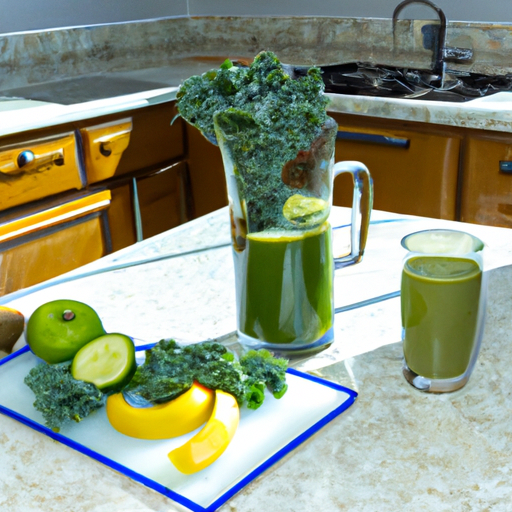As a fan of trying out natural remedies, I was thrilled to discover the numerous advantages of turmeric. From its anti-inflammatory properties to its potential for reducing the risk of heart disease, turmeric appears to be a miraculous spice.
However, as I started consuming more turmeric, I noticed that I was experiencing more bloating than usual. This led me to wonder: does turmeric cause bloating?
In this article, I will explore the link between turmeric and bloating, as well as other factors that may contribute to bloating. I will also provide tips for minimizing bloating while consuming turmeric and other ways to enjoy the benefits of this powerful spice.
Whether you’re a turmeric enthusiast like myself or simply curious about natural remedies, read on to learn more about the potential effects of turmeric on your digestive system.
Key Takeaways
- Bloating symptoms can be caused by excessive gas, water retention, or even constipation.
- Limited research suggests that curcumin in turmeric can help improve digestion and reduce inflammation in the gut, but taking too much can stimulate the production of stomach acid and increase gas production.
- Starting with small amounts of high-quality turmeric, ideally organic and free from fillers and additives, can help prevent bloating.
- Other natural remedies for bloating include peppermint oil, ginger, fennel, probiotics, and apple cider vinegar, but it’s important to speak with a healthcare professional if symptoms persist or worsen.
Understanding Bloating and Its Causes
Do you ever wonder why you feel bloated and uncomfortable? Bloating symptoms can be caused by a variety of factors such as excessive gas, water retention, or even constipation. Some of the most common causes of bloating include dietary changes, eating too quickly, and swallowing too much air.
In some cases, bloating could also be a sign of a more serious underlying condition like irritable bowel syndrome or inflammatory bowel disease. Dietary changes can be a major culprit of bloating. Certain foods are known to cause more gas production in the gut, such as beans, broccoli, and onions.
Additionally, consuming too much salt or not drinking enough water can also lead to water retention and bloating. It’s important to pay attention to what you’re eating and how your body reacts to certain foods in order to identify triggers and avoid discomfort.
With that being said, let’s explore whether turmeric can cause bloating and its potential benefits.
Benefits of Turmeric
You’ll be pleasantly surprised by the many health advantages that turmeric has to offer. Here are five benefits of incorporating turmeric into your diet:
-
Reduced inflammation: Turmeric contains curcumin, which is a powerful anti-inflammatory compound. Studies have shown that curcumin can help reduce inflammation in the body, which is linked to several chronic conditions such as heart disease, cancer, and Alzheimer’s disease.
-
Improved brain function: Curcumin may also help improve brain function by increasing levels of a hormone called brain-derived neurotrophic factor (BDNF). BDNF is responsible for the growth and maintenance of brain cells and is linked to improved memory and mood.
-
Lowered risk of heart disease: Turmeric may help lower the risk of heart disease by improving the function of the endothelium, which is the lining of the blood vessels. It may also help reduce the levels of bad cholesterol and triglycerides in the blood.
-
Anti-cancer properties: Studies have shown that curcumin may have anti-cancer properties by inhibiting the growth of cancer cells and reducing the risk of tumor formation.
-
Improved digestion: Turmeric has been used for centuries to improve digestion and alleviate digestive issues. It may help reduce inflammation in the gut and improve the absorption of nutrients.
If you’re interested in incorporating turmeric into your diet, there are many turmeric recipes available online. However, it’s important to note that the recommended turmeric dosage varies depending on the individual and the condition being treated. It’s always best to consult with a healthcare provider before starting any new supplement or medication.
Moving on to the next section, let’s explore the link between turmeric and bloating.
The Link Between Turmeric and Bloating
Feeling bloated and uncomfortable can really put a damper on your day, but did you know that there may be a link between incorporating turmeric into your diet and reducing bloating?
Turmeric is known for its anti-inflammatory and antioxidant properties, which can help relieve digestive issues such as gas and indigestion. In fact, turmeric has been used in traditional medicine for centuries as a natural remedy for digestive problems.
While there is limited research on the direct effects of turmeric on bloating, some studies suggest that curcumin, the active ingredient in turmeric, can help improve digestion and reduce inflammation in the gut. However, it is important to note that turmeric may not be a cure-all for bloating, and other factors such as diet and lifestyle habits may also contribute to digestive issues.
As such, it’s important to consult with a healthcare provider before making any major dietary changes. Other factors that may contribute to bloating include food intolerances, stress, and certain medical conditions.
By understanding the various factors that can contribute to bloating, you can take steps to improve your digestive health and reduce discomfort.
Other Factors that May Contribute to Bloating
Other factors that may contribute to bloating include food intolerances, stress levels, and certain medical conditions, all of which can affect your digestive health. Certain foods, such as dairy, gluten, and beans, may be difficult for some people to digest, leading to uncomfortable bloating. It’s important to pay attention to your body’s reactions to certain foods and avoid those that consistently cause discomfort.
Lifestyle changes can also play a role in reducing bloating. Eating smaller, more frequent meals throughout the day can help prevent overeating and promote better digestion. Staying hydrated and avoiding carbonated beverages can also help reduce bloating. Regular exercise and stress-reducing activities like yoga or meditation can also improve digestion and reduce bloating.
By taking a holistic approach to digestive health, you can identify the root cause of your bloating and make the necessary changes to feel better. If you’re experiencing bloating and suspect turmeric may be the culprit, there are a few steps you can take to determine if this is the case.
How to Determine if Turmeric is Causing Your Bloating
If you’ve been experiencing discomfort in your stomach area, it might be helpful to investigate whether consuming turmeric could be contributing to it. Here are some steps you can take to determine if turmeric is causing your bloating:
-
Identify symptoms: Take note of any symptoms you experience after consuming turmeric. These can include bloating, gas, abdominal pain, or diarrhea.
-
Experiment with elimination: Try eliminating turmeric from your diet for a few days and see if your symptoms improve. If they do, reintroduce turmeric and see if your symptoms return. This can help you determine if turmeric is the culprit of your bloating.
-
Consult a healthcare provider: If you’re still unsure if turmeric is causing your bloating, consult with a healthcare provider. They can help you identify any underlying digestive issues that may be contributing to your symptoms.
By following these steps, you can determine if turmeric is causing your bloating and take appropriate measures to minimize discomfort.
In the next section, we’ll discuss some tips for minimizing bloating while consuming turmeric.
Tips for Minimizing Bloating While Consuming Turmeric
When it comes to consuming turmeric, I’ve found that starting with small amounts is essential to minimizing bloating. Another tip I’ve learned is to use high-quality turmeric, as this can make a significant difference in how well your body can tolerate it.
Finally, consider taking turmeric with other digestive aids, such as ginger or black pepper, to help your body absorb it and reduce any discomfort. These tips have helped me enjoy the many health benefits of turmeric without the unwanted side effects.
Start with Small Amounts
Starting with small amounts of turmeric can help prevent bloating. It is recommended to start with 1/4 to 1/2 teaspoon of turmeric per day and gradually increase the amount over time. This will give your body time to adjust to the new addition to your diet and help you monitor any potential symptoms, such as bloating or stomach discomfort.
To help visualize the recommended amounts, here is a table to reference:
| Turmeric Amount | Teaspoons | Grams |
|---|---|---|
| Starting Amount | 1/4 | 0.5 |
| Gradual Increase | 1/2 | 1 |
| Moderate Use | 1 | 2 |
| High Use | 1 1/2 | 3 |
| Maximum Use | 2 | 4 |
Remember, everyone’s body reacts differently to new foods, so it’s important to pay attention to how your body responds to the turmeric. If you experience any bloating or discomfort, it may be necessary to decrease the amount you are consuming. In the next section, we will discuss the importance of using high-quality turmeric to further prevent bloating.
Use High-Quality Turmeric
Using high-quality turmeric can reduce the risk of bloating. A study found that low-quality turmeric can contain harmful additives that may cause digestive issues. Therefore, it’s important to find high-quality turmeric that’s free from fillers and additives.
One way to ensure that you’re getting high-quality turmeric is to choose organic turmeric. Organic turmeric is grown without the use of synthetic pesticides and fertilizers, which can also contribute to digestive issues.
In addition to reducing the risk of bloating, high-quality turmeric has many other benefits. It contains compounds called curcuminoids, which have anti-inflammatory properties and may help with a variety of health conditions, including arthritis and heart disease.
Incorporating high-quality turmeric into your diet can be a great way to support overall health and wellness. Consider taking turmeric with other digestive aids to further enhance its benefits.
Consider Taking Turmeric with Other Digestive Aids
To further enhance your digestive health, you might want to consider taking turmeric with other digestive aids. There are a variety of supplements that can improve your gut health and enhance the benefits of turmeric. Here are some options to consider:
-
Digestive enzymes: These supplements help break down food and improve nutrient absorption, making it easier for your body to process turmeric and other foods.
-
Probiotics: These supplements provide beneficial bacteria to your gut, promoting healthy digestion and reducing inflammation.
-
Combining turmeric with ginger: This potent anti-inflammatory duo can provide even more digestive benefits, reducing bloating and improving overall gut health.
-
Peppermint oil: This supplement can help reduce bloating and improve digestive function, making it a great addition to any turmeric regimen.
By combining turmeric with other digestive aids, you can maximize the benefits of this powerful spice for your gut health. However, there are other ways to enjoy the benefits of turmeric beyond supplements and we’ll explore them in the next section.
Other Ways to Enjoy the Benefits of Turmeric
I’ve found that incorporating turmeric into my daily routine has been incredibly beneficial for my overall health and wellbeing. While consuming turmeric in food can be a great way to enjoy its benefits, there are also other ways to incorporate this superfood into your life.
Turmeric supplements are a popular option for those looking to get a concentrated dose of curcumin, the active compound in turmeric. Topical use of turmeric can also help with skin issues and inflammation.
Turmeric Supplements
Turmeric supplements can be a double-edged sword; they can provide a lot of health benefits, but too much of them can cause bloating like a balloon. It’s important to be mindful of turmeric dosages and to always consult with a healthcare professional before taking them.
Despite the possibility of bloating, turmeric supplements can still be a beneficial addition to one’s diet. They contain high levels of curcumin, the active ingredient in turmeric, which has been shown to have anti-inflammatory and antioxidant properties. However, it’s important to be cautious and not overdo it with turmeric supplements.
In the next section, we’ll explore another way to enjoy the benefits of turmeric through its topical use.
Topical Use of Turmeric
Using turmeric topically can provide a different way to reap its benefits without having to worry about potential digestive issues. Turmeric has been used for centuries in Ayurvedic medicine for its anti-inflammatory and antioxidant properties. Nowadays, turmeric is also being incorporated into skin care routines and is a popular ingredient in face masks.
In fact, turmeric face masks have gained popularity due to their ability to brighten the skin and reduce inflammation. Turmeric contains curcumin, which has been shown to have anti-inflammatory effects on the skin. Moreover, studies have suggested that the antioxidant properties of curcumin can help protect the skin from damage caused by free radicals. Incorporating turmeric for skin care is a great way to enjoy its benefits without having to worry about any potential digestive issues.
Transitioning into the subsequent section about incorporating turmeric in cooking, it is important to note that while turmeric is a great addition to skin care routines, it can also be incorporated into cooking to provide a range of health benefits.
Incorporating Turmeric in Cooking
Now that we’ve discussed the benefits of using turmeric topically, let’s explore how we can incorporate it in our daily cooking.
Turmeric is a versatile spice that can be used in a variety of dishes, including curries, soups, and even smoothies. Not only does it add a vibrant color to your meals, but it also provides numerous health benefits.
Turmeric is known for its anti-inflammatory properties, making it a great addition to any diet. It’s been shown to reduce inflammation in the body, which can help alleviate symptoms of conditions such as arthritis and digestive issues.
There are numerous turmeric recipes available online that are both delicious and easy to make. Whether you’re a fan of Indian cuisine or simply looking to add some flavor to your meals, turmeric is a great option to consider.
When it comes to bloating, it’s important to know when to see a doctor. While turmeric has many health benefits, it may not be suitable for everyone and may cause bloating in some individuals. If you experience persistent bloating or other digestive issues, it’s important to speak with a healthcare professional to rule out any underlying conditions.
When to See a Doctor
If you experience persistent bloating after consuming turmeric, it’s important to schedule an appointment with your doctor to rule out any underlying medical conditions. While turmeric is generally safe for consumption and has been used for its medicinal properties for centuries, it can cause bloating in some individuals.
This may be due to the active compound in turmeric called curcumin, which can stimulate the production of stomach acid and increase the production of gas in the digestive tract. Your doctor’s advice and a medical evaluation can help determine if the bloating is due to a food intolerance or a more serious medical condition.
In some cases, bloating may be a symptom of a gastrointestinal disorder, such as irritable bowel syndrome (IBS) or inflammatory bowel disease (IBD). If this is the case, your doctor may recommend a treatment plan to alleviate symptoms and manage the condition. Other natural remedies for bloating can also be explored, but it’s important to seek medical advice first.
Other Natural Remedies for Bloating
Looking for a variety of natural remedies to ease your digestive discomfort? There are many options available that may help alleviate bloating and other digestive issues. Here are five natural remedies that you can try:
-
Peppermint oil: Peppermint oil is known for its ability to soothe the digestive tract and relieve bloating and gas. It can be taken in capsule form or added to hot water for a soothing tea.
-
Ginger: Ginger has anti-inflammatory properties that can help reduce bloating and other digestive discomfort. It can be consumed as a tea, added to meals, or taken in capsule form.
-
Fennel: Fennel is a natural carminative, meaning it can help reduce gas and bloating. It can be consumed as a tea or added to meals.
-
Probiotics: Probiotics are beneficial bacteria that can help restore balance to the gut microbiome and improve digestive function. They can be found in fermented foods like yogurt or taken in supplement form.
-
Apple cider vinegar: Apple cider vinegar may help improve digestion and reduce bloating. It can be added to water or used as a salad dressing.
While natural remedies may help alleviate digestive discomfort, it’s important to speak with a healthcare professional if symptoms persist or worsen.
Frequently Asked Questions
Can turmeric be used to treat bloating?
I’ve found that turmeric has many benefits, including treating bloating. It’s one of my go-to natural remedies. Studies show that turmeric can reduce inflammation and improve digestion, leading to less bloating.
Are there any side effects of consuming turmeric?
I have found that consuming turmeric in moderation does not typically cause any significant side effects. In fact, research suggests that turmeric may have potential benefits for liver function and reducing inflammation in the body.
How much turmeric should be consumed to avoid bloating?
Let’s cut to the chase: to prevent bloating when consuming turmeric, experts recommend a maximum of 1-2 teaspoons daily. Additionally, avoid taking it on an empty stomach and consider pairing it with ginger for added digestive support.
Can turmeric interact with certain medications and cause bloating?
I’ve learned that turmeric medication interaction may cause bloating. It’s important to consult with a healthcare professional before taking turmeric supplements, especially if you’re on medication. They may recommend turmeric bloating treatment options or suggest alternative remedies.
Can turmeric cause bloating in people with digestive issues such as IBS or Crohn’s disease?
Turmeric has been shown to have anti-inflammatory properties that may benefit those with digestive issues like IBS or Crohn’s disease. While it may not directly cause bloating, turmeric can help prevent it through its ability to reduce inflammation in the gut.
Conclusion
In conclusion, I’ve found that while turmeric is powerful and beneficial, it can also lead to bloating in some individuals. I’ve experienced this firsthand, so I understand how uncomfortable and frustrating it can be.
However, we can minimize the risk of bloating by taking some simple steps. This includes consuming turmeric in moderation, pairing it with other digestive aids, and paying close attention to our bodies.
To put it simply, turmeric is like a powerful tool that can be both helpful and harmful depending on how we use it. By being mindful and educated about its effects, we can harness its power to support our health and wellness goals without experiencing unnecessary discomfort.
So whether you’re a seasoned turmeric enthusiast or just starting to explore its potential, remember to listen to your body and take care of yourself first and foremost.










